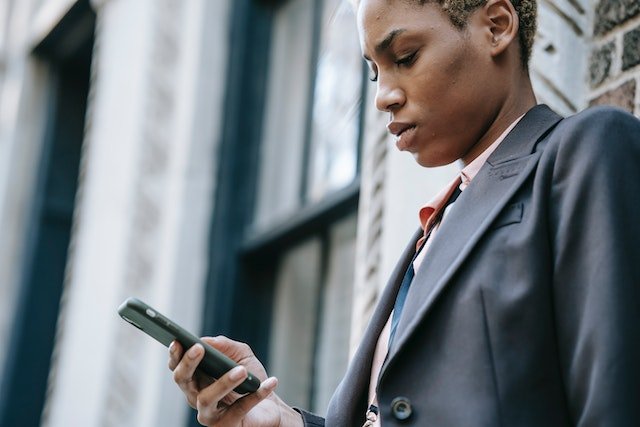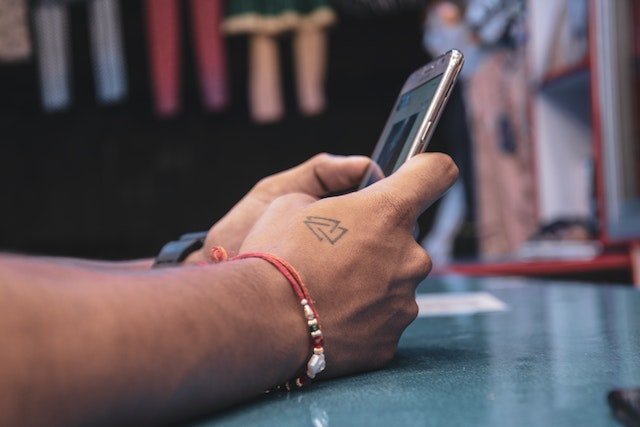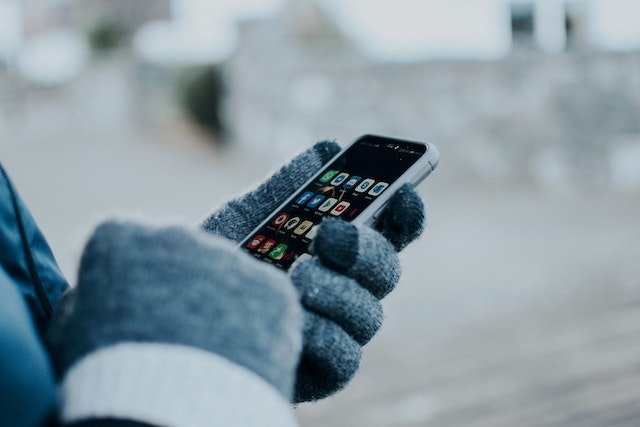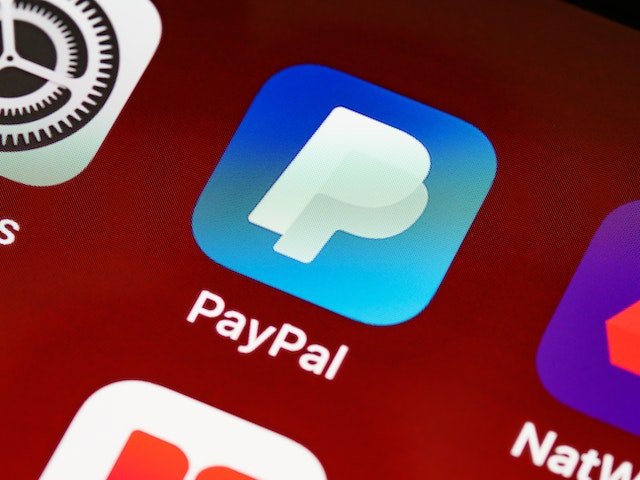Can Someone Hack My PayPal With Just My Email?
The possibility of hacking the PayPal account using only the email addresses of users is very unlikely due to the site’s rigorous security measures. PayPal utilizes multi-layered authentication and encryption protocols to safeguard customers’ private data. Most successful breaches involve more than just an email.
It involves techniques such as phishing, malware, or using weak passwords. It is essential that users use strong passwords, make use of two-factor authentication and stay vigilant to ensure the security of their accounts.
Can A PayPal Account Be Compromised

Like all online services, PayPal accounts can potentially be the target of cybercriminals. Hackers usually employ a variety of techniques to gain access to accounts. This could result in fraudulent transactions and financial loss. It is important to be aware of risks that could be posed to you in order to protect yourself from their attacks.
Phishing Attacks: A Sneaky Strategy
A very frequent way hackers try to hack PayPal accounts is via phishing attacks. These types of attacks are based on sending misleading emails or messages that resemble authentic PayPal messages.
People who aren’t aware could be manipulated into divulging login details or other personal details. To prevent this from happening, be sure to verify the email address of the sender and avoid clicking on suspicious hyperlinks. PayPal does not ever ask for personal information through email.
Weak Passwords: An Open Door

Making use of weak, easily-guessed passwords is like opening your front door open to hackers. To increase the security of your account, ensure you have a secure password that is comprised of lowercase and uppercase letters as well as numbers and other special characters. Also, you should consider changing your password on a regular basis to keep just one step in front of possible attackers.
PayPal’s Robust Security Measures
PayPal is committed to security and has implemented a number of security measures to guard users’ accounts against unauthorized access.
Two-Factor Authentication (2FA)
Two-factor authentication adds an additional level of protection for PayPal. PayPal account. If 2FA is enabled, it is required to provide a different element of information, typically an individual code that is sent to your mobile device along with your password. In the event that hackers manage to steal the password you have entered, they will not be able to log into accounts without having the second code.
Safeguarding Your Data
PayPal uses advanced encryption techniques to safeguard your private information. If you ever send funds or accept money, all your data is secured, making it difficult for hackers to steal and read.
Account Monitoring and Alerts
PayPal’s system is constantly monitoring transactions for suspicious activity. If an unusual or illegal transaction is detected, you’ll be notified by an alert. This lets you immediately act and report any suspicious activity.
Best Practices to Ensure Account Security
Although PayPal has taken strong safety measures to protect your account, there are some best practices you can follow to improve the security that your accounts enjoy.
Regularly Update Your Information
Keep your contact information up to date. If there is an update to the email address you use or your telephone number, be sure to make the changes to the settings of your PayPal setting for your PayPal account. This ensures you get crucial security notifications and alerts immediately.
Monitor Account Activity
Check your account’s activity regularly to find any transactions you aren’t sure about. If you spot any anomalies, make sure you notify PayPal immediately.
Avoid Public Wi-Fi for Sensitive Transactions
Utilizing public Wi-Fi networks to conduct sensitive PayPal transactions could expose your information to security threats. If possible, make sure you conduct transactions using secured, private networks to reduce the risks.
Does PayPal Access My Email Address?

In essence, PayPal serves as a digital payment platform that allows users to transfer and receive cash and make online purchases and monitor their financial transactions. The email address that is associated with the PayPal account plays an important function in the facilitation of transactions and communication. It is important to discern between the functions that PayPal needs, the use of your address, and any other unauthorized or intrusive use of the information.
The Necessity of Email Address
When you open an account with PayPal, you will provide the email address you use as the primary method for identification and communication. It serves multiple functions and includes:
- Account Verification: When you register, PayPal uses your email address to verify your identity and guarantee you are safe with your PayPal account. This helps to prevent illegal access and fraudulent activity.
- Transaction Notifications: When you start a transaction or receive funds from PayPal the platform, it sends out notifications to the email address you registered. These notifications will keep you updated about the progress of your transaction, increasing the transparency of your transactions and accountability.
- Communications Channels: PayPal makes use of your email address in order to notify you of important information about policy updates, security changes and offers for promotional purposes. This will ensure that you are informed about any new developments affecting your account.
Data Privacy and Security Measures
- As an ethical service provider: PayPal is committed to the security and privacy of data very seriously. PayPal has put in place robust security measures to protect the personal information that you provide, including the email addresses you provide. The measures include:
- Secure transmission: PayPal employs advanced encryption protocols to ensure the security of information transmission, guaranteeing that email addresses, as well as other information that is sensitive, remain private throughout online transactions.
- Two-Factor Authentication: (2FA) to provide an additional level of protection, PayPal offers the option of activating two-factor authentication. This option needs you to supply another form of proof, like a code that you can send via email prior to opening your account.
- Privacy Protections: PayPal gives users the option of adjusting their privacy options. You can alter the type and frequency of your emails to help you control your inbox and reduce concerns regarding information overload.
Addressing Common Concerns
Although PayPal does have access to an email account for legit reasons, it’s vital to dispel misunderstandings and address any concerns that might arise:
Email Scanning
There have been rumors regarding PayPal checking emails for keywords to customize advertising or offer. But, the primary focus of PayPal is on transactions-related communications, and any analysis of data is designed to improve security and the user experience, not for invasive marketing.
Third-Party Sharing
PayPal doesn’t give your email address to any third party for marketing purposes without your express consent. Your personal information is kept within the boundaries of the system, further enhancing your privacy.
Unauthorized Access
PayPal uses a number of security measures to block the unauthorized access of your account. If you maintain your passwords with care and use security features such as 2FA, your email address as well as account information will be secure.
How Can I Stay Away From Getting Scammed By PayPal

PayPal scams can come in a variety of types, focusing on sellers and buyers. Scammers typically attempt to take advantage of the trust that users place in the site, employing methods that appear plausible at first. It’s important to know typical types of PayPal frauds to ensure you aren’t a to their trap.
The Silent Threat
Phishing emails are among the most common scams in the age of digital. These fake messages resemble legitimate PayPal messages, encouraging users to click on suspicious links or give sensitive data. Always confirm the email address provided by the sender, and refrain from clicking hyperlinks in emails that are not from a legitimate source.
Stay Vigilant
Scammers could send fake payment notifications that trick sellers into thinking they’ve received money. To verify the legitimacy of a transaction, sign into the PayPal account directly rather than using only email notifications.
A Clever Ploy
In this scam, fraudsters pay more than they should for a product or service and then demand a reimbursement for the extra amount. Beware of sellers who hurry the transaction or force you to pay before the initial payment has cleared.
Prompt Action Required
If you spot suspicious transactions on the account of your PayPal account, make sure you report the transactions immediately. PayPal provides strong protection for both the seller and buyer; however, swift actions are crucial for resolving the issues efficiently.
Top Tips to Protect Yourself
Create a secure and unique username for your PayPal account by mixing numbers, letters, and other special characters. Avoid using easily-guessed data such as birthdays or names.
Double the Security
Set up 2-factor authentication (2FA) to add an additional measure of safety. By enabling 2FA, you’ll get an authentication code via your email or phone that makes it more difficult for anyone who isn’t authorized to access your account.
Verify Before Clicking
Prior to clicking any hyperlinks in emails, make sure they’re authentic PayPal domains. You can hover over the links to see the URLs that are actually on the web, and if you’re not sure, you can directly go to their PayPal website.
Keep Software Updated
Make sure you regularly ensure that you are updating your device’s operating system as well as security programs. Older software may be vulnerable that scammers can exploit.
Educate Yourself
Being informed is the best protection. Be aware of the most recent scams and PayPal’s official practices for communication.
Secure Wi-Fi Connection
Do not connect to your PayPal account through Wi-Fi networks that are accessible to the public. Instead, make sure you use an encrypted and secure connection to avoid surveillance by hackers.
Recognizing Legitimate PayPal Communications
Genuine PayPal emails usually include specific information about the account as well as transactions. Beware of emails with no specific details. Legitimate emails will never request sensitive information such as passwords or social security numbers.
What to Do if You Suspect a Scam?
If you think you’ve come across a PayPal scam, take these steps:
- Beware of responding to messages: That are suspicious and clicking any of the provided hyperlinks.
- Contact PayPal Contact PayPal: Submit the problem to PayPal’s support team for customer service via their website or application.
- Check Your Account: Frequently examine the account to identify any suspicious transactions and immediately report them.
- Report a Fraud: If you’ve been prey to fraudsters, you should file your complaint with the appropriate authorities and institutions.
FAQ’s
Can someone hack my PayPal with just my email?
Hacking solely through an email address is unlikely due to PayPal’s security measures like strong passwords and two-factor authentication.
Is my PayPal account safe with just my email hidden?
Concealing your email helps, but hackers might use other methods. Strengthen security with unique passwords, 2FA, and monitoring.
Can someone steal money from my PayPal using my email address?
Direct theft with just an email is difficult. Hackers may attempt phishing or social engineering to gather sensitive information.
Can someone reset my PayPal password with just my email?
PayPal typically requires more than email for password resets, using security questions or verification codes.
How can I protect my PayPal account from email-based attacks?
Safeguard by using strong passwords, enabling 2FA, updating passwords regularly, avoiding phishing emails, and being cautious with links.
What should I do if I suspect unauthorized access to my PayPal account?
Take action by changing your PayPal password, contacting support, reviewing transactions, and updating passwords for other accounts if needed.


















